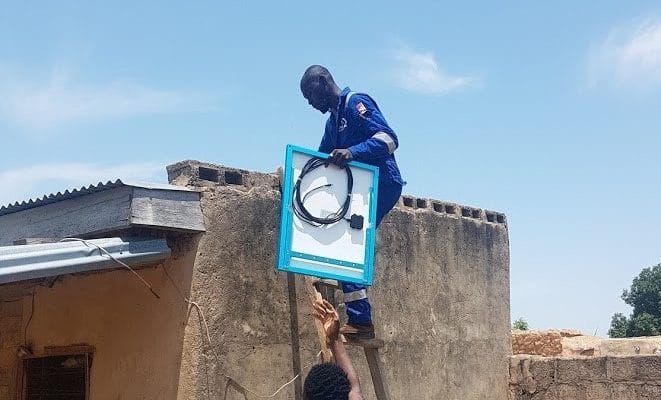- A new briefing released by Oil Change International details how the growth of distributed renewable energy in Africa has so far failed to include locally-owned companies and initiatives.
- The sector has been growing rapidly since 2013 – especially for companies focused on “pay-as-you-go” solar home systems — but finance has overwhelmingly only been accessible for multinational companies that are based in Europe or North America or led by entrepreneurs from these regions, meaning profits are largely not remaining in Africa.
“As governments and public finance institutions around the world prepare historic stimulus packages in response to COVID-19, we have an important opportunity to grow distributed renewable energy in Africa,” said Thuli Makama, Senior Advisor at Oil Change International, “But we need this funding to help start locally owned renewable energy initiatives instead of just flowing to a handful of overseas companies.”
“Mini-grid and off-grid renewable energy is more cost effective and resilient than both grid-based renewable energy and off-grid fossil fuels,” said Bronwen Tucker, Research Analyst at Oil Change International, “Growing a locally owned distributed renewable energy economy is more important than ever. The pandemic has laid bare the need to build energy systems that are resilient to future crises, including the global market shocks and natural disasters we can expect to see intensify as climate impacts escalate.”
The briefing, Distributed Funds for Distributed Renewable Energy, also includes data showing international public finance for projects in Africa has overall been dramatically misaligned with energy access and climate change priorities. Only about 1-2% of international public finance for energy has gone to energy access for distributed renewable energy since 2014, and fossil fuels received more than 3.5 times the support than all kinds of renewable energy did from 2016 to 2018.
In addition to echoing long standing calls for international public finance institutions like multilateral development banks and development finance institutions to stop funding fossils and invest in renewables for energy access, the briefing outlines three new areas of recommendations for how these institutions can support the growth of locally owned distributed renewable energy initiatives:
- Supporting the entry of local finance institutions into the distributed renewable energy sector,
- Facilitating coordination, research and planning between international public finance institutions, local banks, and distributed renewable energy providers, and
- Increasing support for distributed renewable energy, with an emphasis on community-owned and cooperative models.
Read the full briefing here
Author: Bryan Groenendaal
Source: Oil Change
















1 Comment
A startup company in KwaZulu-Natal has developed a tough “built for Africa” home lighting system, with 85% local content and using military grade cable connections and components, for its “Commanda” series off grid home lighting systems.
Essentially only the solar panel is imported although that too could be locally produced, once or if the local already established assembly plants in Cape Town and Durban could be convinced to produce these small 20w or 40w panels.
For more info contact us:
Ian@grafrex.co.za
Syd@telkomsa.net